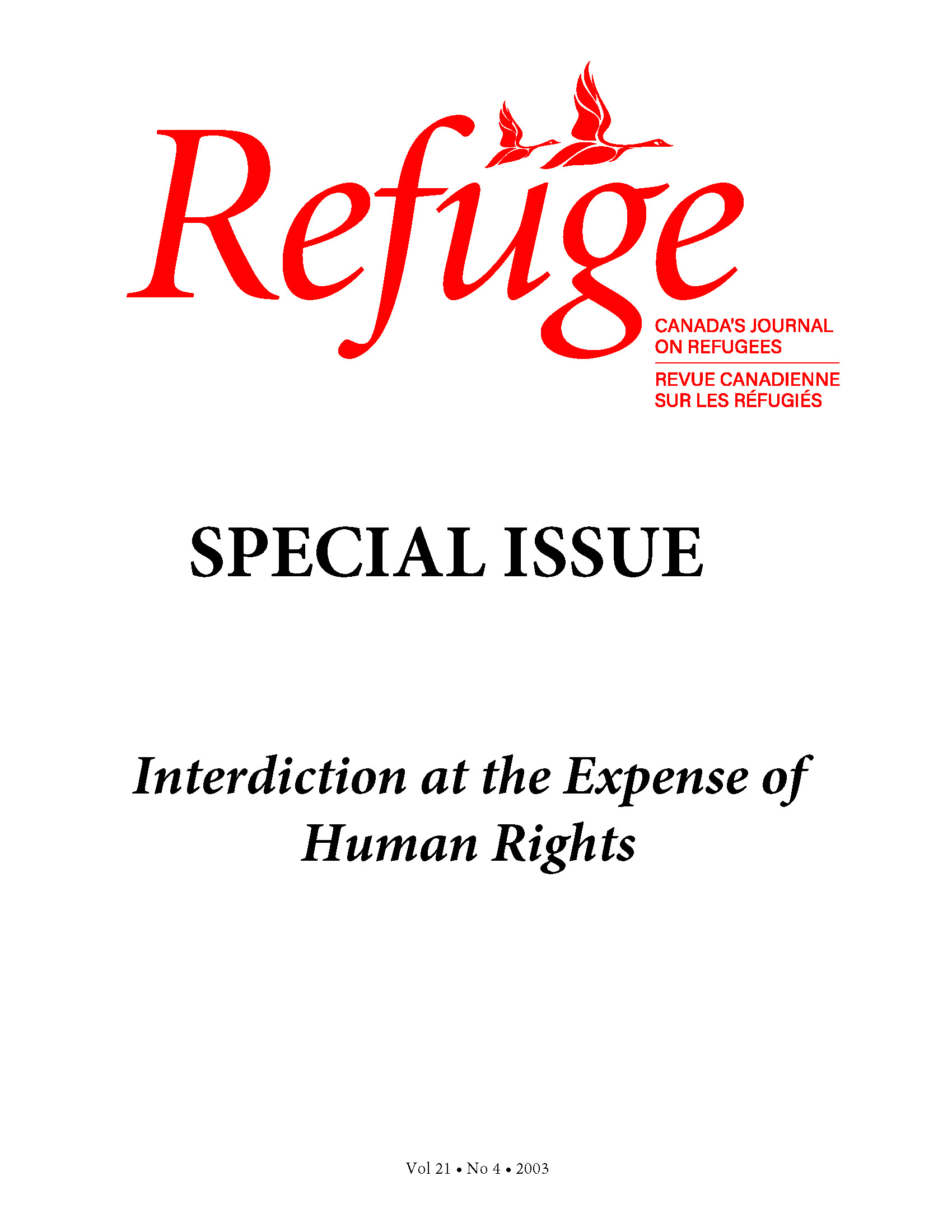The Spaces In Between: American and Australian Interdiction Policies and Their Implications for the Refugee Protection Regime
DOI:
https://doi.org/10.25071/1920-7336.21308Keywords:
United States, Australia, interdiction, asylum policy, refugee protection, law, non-refoulementAbstract
Interdiction policies by countries such as the U.S. and Australia are embedded in these states’ perception of their obligations to asylum seekers as strictly territorially bound. With the aim of limiting asylum seekers access to protection mechanisms, these policies are carried out in an arena firmly within the reach of executive-driven actions yet beyond the purview of constitutional or judicial safeguards. In the case of the U.S., the long-standing Haitian interdiction policy illustrates the manipulation of this protection gap, and, in Australia, the administration’s reaction to the Tampa incident in 2001 and the subsequent policy developments provide further illustration. The autonomy with which states carry out such policies poses a significant threat to the refugee protection regime, especially the international norm of non-refoulement.Metrics
Downloads
Published
How to Cite
Issue
Section
License
Copyright (c) 2003 Jessica C. Morris

This work is licensed under a Creative Commons Attribution-NonCommercial 4.0 International License.
Refuge authors retain the copyright over their work, and license it to the general public under the Creative Commons Attribution-Non Commercial License International (CC BY-NC 4.0). This license allows for non-commercial use, reproduction and adaption of the material in any medium or format, with proper attribution. For general information on Creative Commons licences, visit the Creative Commons site. For the CC BY-NC 4.0 license, review the human readable summary.







